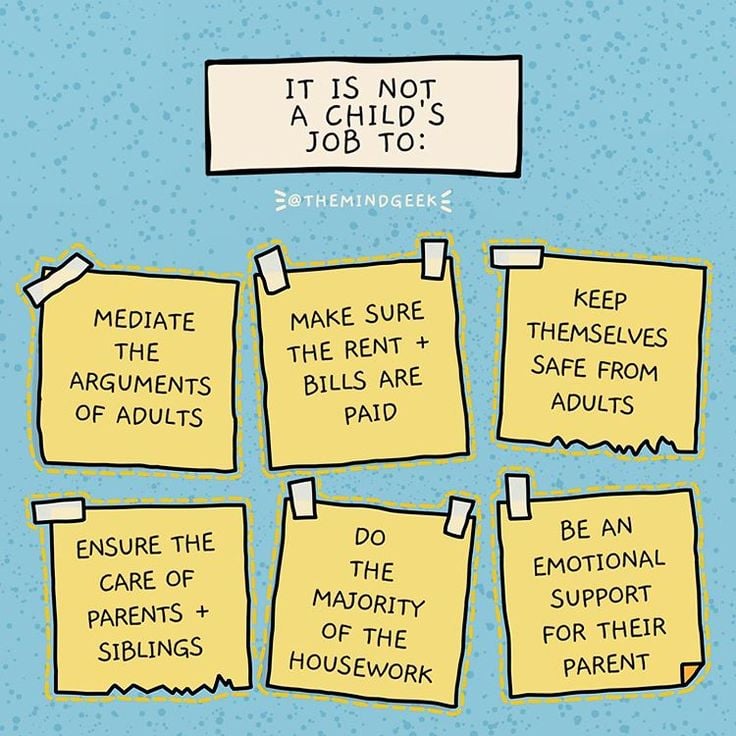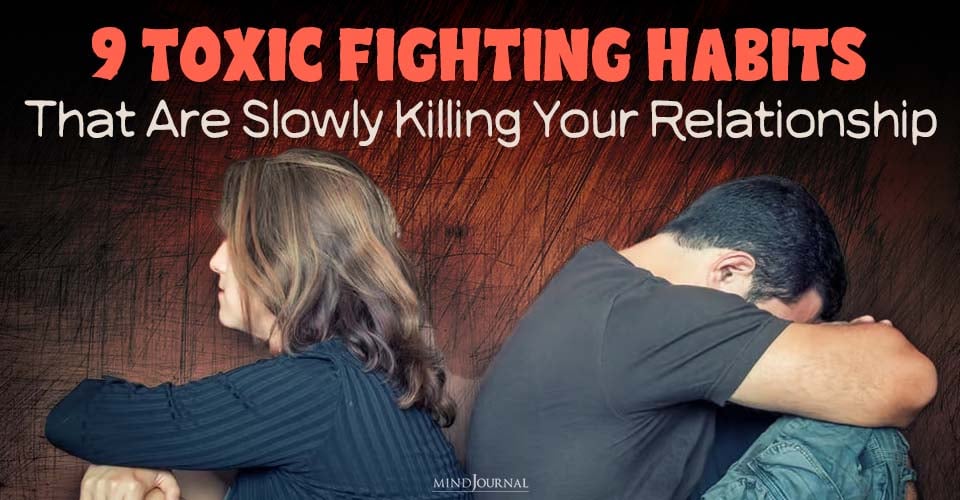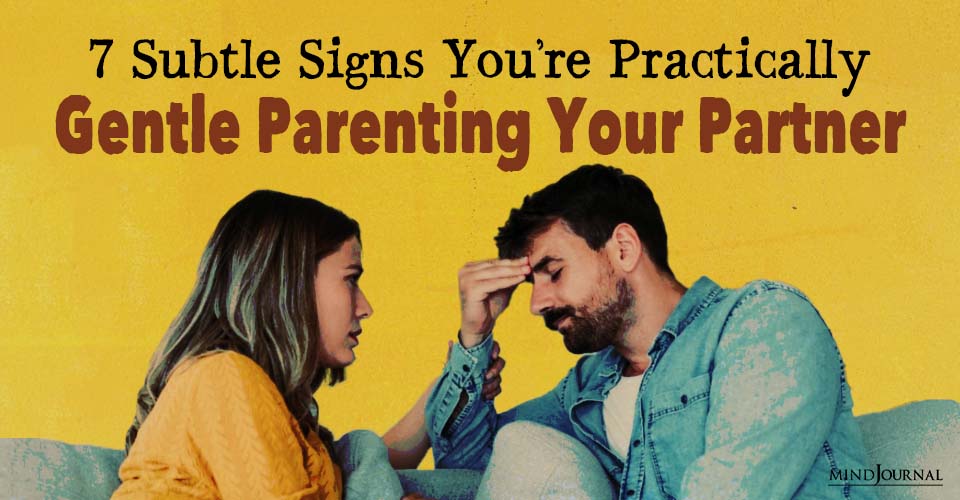They say girls “mature too fast,” but for some parentified daughters, it’s a reality driven by the heavy responsibilities for their families, well beyond their years. This phenomenon is known as child parentification.
It occurs when a child is burdened with tasks and emotional support roles that should belong to their parents or guardians. When the parentified eldest daughter takes on responsibilities early in life, it can profoundly shape her personality and relationships.
If this sounds all too real, let’s learn the common signs of a parentified daughter, so you can understand the unique challenges and childhood experiences that continue to influence their lives as adults.

Read more here: Consequences Of Emotionally Immature Parents: 7 Behaviors That Breed Self-Hate In Children
The Parentified Daughter: Signs You Were Burdened With Responsibilities
1. You Feel Over-Responsible and Fear Failing
Do you wake up every day feeling as though you carry the weight of the world on your shoulders? As a parentified daughter, you have stepped into your parents’ shoes doing things such as housekeeping and taking on caregiving roles for your younger siblings far beyond your age.
This over-responsibility may have left you feeling too harsh on yourself all the time as though there would be dire consequences should you fail at something.
Perhaps you were the one who ensured that there was dinner on the table every night or looked after younger siblings while the parents were working or sorting emotional distress issues.
Now that you are grown, you might still feel that you are the custodian of everyone’s peace and that takes a toll on you even in adulthood.
2. You’re A People-Pleaser
Do you habitually neglect your own interests and prioritize those of others? You might have developed the emotional habit of making others happy to the extent that they do not object to you keeping the peace thus losing yourself in the process.
A caregiver would be a people pleaser, and out of fear of disappointing others, they might tend to accommodate everyone, only to end up overwhelmed and bitter in their dear concern of fixing others’ problems.
3. You Struggle with Setting Boundaries
Do you find it hard to say no, even when you’re overwhelmed? Setting boundaries can be especially difficult for you because you are so used to putting others first.
You might feel guilty or anxious when you try to set limits with friends, family, or coworkers, fearing that they’ll be upset with you or that you’re letting them down.
4. Your Self-Esteem Takes a Hit
Do you struggle with feeling good about yourself? Constantly focusing on others like family members, makes you susceptible to losing sight of your self-worth. You may have internalized the idea that your value lies in what you can do for others, not in who you are.
There is a chance that you might feel unworthy of your job, your relationships, your endeavors, or any other thing in your life because you have been trained to believe that your worth is in being of service to others and nothing beyond that.
5. You Have A Deep Seated Fear of Abandonment
Are you scared that people will leave you if you’re not taking care of them? Growing up in a caretaking role can make you fear that if you don’t hold everything together, you’ll be left alone. In relationships, you might find yourself clinging to people or constantly worrying that they’ll leave you if you stop being the “strong one” or the caretaker.
6. Your Relationships Are Often Unbalanced
Do you find yourself taking care of your partner or friends more than they take care of you? It’s common for parentified daughters to fall into relationships where they’re the caretakers because that’s what feels familiar. You might end up in a relationship where you’re always the one giving, supporting, or fixing things, while your partner takes a more passive role.
7. You’re A Perfectionist
Do you push yourself to be perfect in everything you do? As a parentified daughter, you may have learned that perfection was the only way to avoid criticism or to make sure things didn’t fall apart.
You might find yourself obsessing over every detail in your work or personal life, feeling like anything less than perfect isn’t good enough, even if it exhausts you.
8. You Find It Hard to Express Your Emotions
One of the signs of a parentified daughter is that you keep your feelings bottled up. You might have learned to suppress your own emotions, prioritizing everyone else’s needs over your own just to keep things stable at home.
Even when you’re upset, you might struggle to express it, either because you don’t want to burden others or because you’ve been taught that your feelings don’t matter as much as theirs.
9. Not Being Able To Express Emotions Causes You To Experience Physical Symptoms
Does stress show up in your body? The pressure of taking parentified daughters as adults can lead to physical symptoms, even if you don’t always connect them to your emotional state.
You might suffer from frequent stomach issues, headaches, or fatigue, which could be your body’s way of responding to the chronic stress you’ve experienced.
10. You’re Guilty and Resentful
Is it wrong to wish for one’s own life in a world that seems overrun with responsibilities? Being the parentified daughter comes with a tinge of guilt especially when you try to focus on yourself feeling irritated towards the position you find yourself in.
One of the signs of a parentified daughter is that you may feel bad that you want to have your aspirations or feel sorry that you never had the opportunity to be a child without adult responsibilities.
Recognizing these signs can be the first step toward healing from the effects of parentification.
Remember, it’s okay to seek help and to prioritize your own needs. You’ve spent so much time taking care of others—now it’s time to take care of yourself.
Unique Ways to Heal from Eldest Daughter Parentification
As the eldest daughter, you may have taken on responsibilities far beyond your years. Healing from this experience is possible, and here are four unique ways to help you on your journey:
1. Embrace Your Inner Child
Revisit invisible hierarchies and domination practices that mold society’s structures by being active in the fun activities you missed as a younger person.
Whether it is painting, riding bikes, or catching up on cartoons, whatever makes your inner child feel happy, such lets her joy. Maintain a diary for your inner child, send her letters, and let her speak.
2. Maintain Boundaries With Family
It is important for ‘family-free’ days where you only care about yourself. Don’t simply just say ‘no’, treat them with kindness, but carry a firm stance and explain that this is what you need for your sanity.
3. Try The Self-Parenting Approach
Make it a resolution that there will be regular events that will enhance holistic growth once a week such as a self-care Sunday. These activities will immunize you from feeling neglected and uncared for. Show appreciation to yourself and for the love that was lacking when growing up.
4. Network With Women Who Are Like You
Seek out support groups in person or via the web so that you can share what you are going through with others.
To know that people have gone through similar experiences and come out stronger. You can even make your own support group or a book club if there isn’t any available.
Read more here: The Hidden Toll of Childhood Emotional Incest: Identifying Signs and Effects
By incorporating these strategies, you can reclaim your sense of self and prioritize your well-being. Share your thoughts about this in the comments below!










Leave a Reply